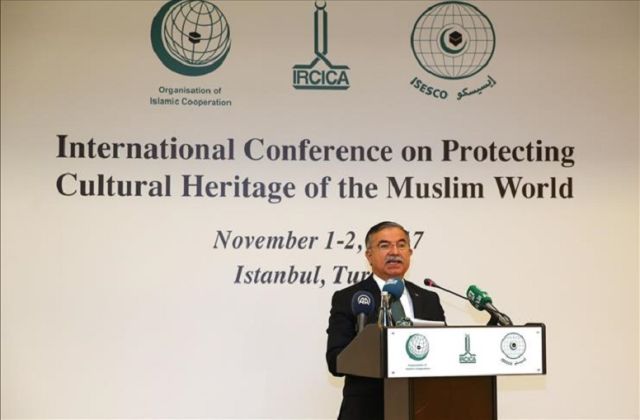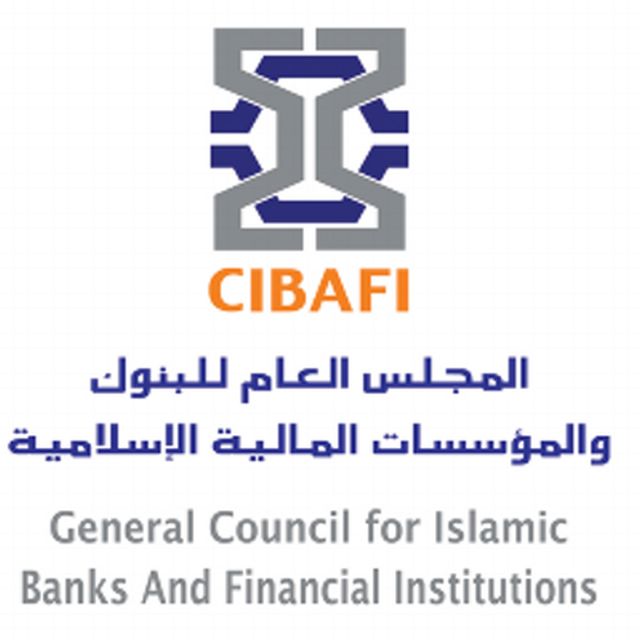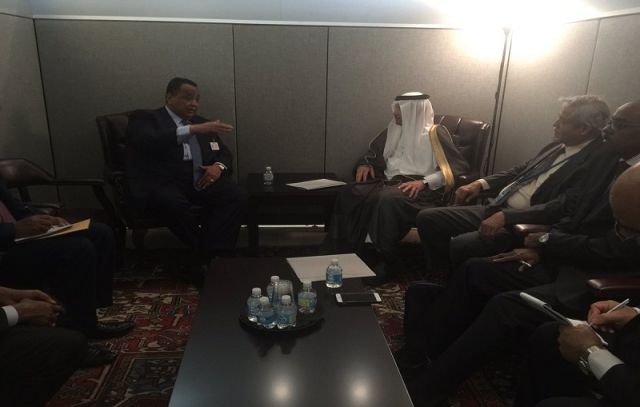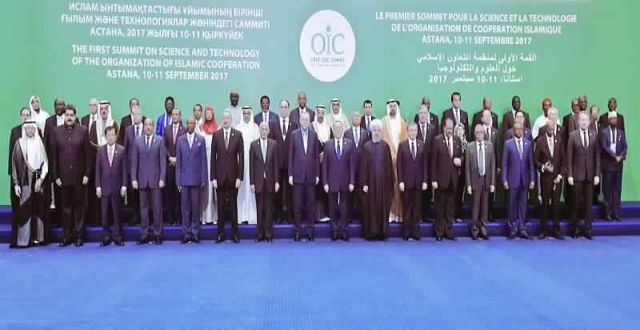
by Editor | May 25, 2021 | Business Summit, Events, Muslim World, Social Round-up
 Istanbul : The activities of the International Conference on Protecting Cultural Heritage of the Muslim World kicked off Wednesday in the Turkish city of Istanbul.
Istanbul : The activities of the International Conference on Protecting Cultural Heritage of the Muslim World kicked off Wednesday in the Turkish city of Istanbul.
The two-day event is being held under the sponsorship of the Istanbul-based OIC Research Centre for Islamic History, Art and Culture (IRCICA) and the Rabat-based Islamic Educational, Scientific and Cultural Organization (ISESCO).
“Cultural heritage is one of the most important human values,” said Turkish Education Minister Ismet Yilmaz in a speech at the opening ceremony of the conference.
“The transfer of this legacy to future generations is an indispensable guide and condition to prove humanity’s progress,” he added, pointing out that Istanbul is one of the most important global cultural centers.
Yilmaz called on the Islamic world to make further efforts to preserve the cultural heritage and protect it from the ongoing wars in a number of countries in the region.
—AB/OIC-UNA

by Editor | May 25, 2021 | Muslim World
 Manama : Aligned with its role as advocate of the Islamic Financial Services Industry (IFSI), the General Council for Islamic Banks and Financial Institutions (CIBAFI) – the global umbrella of Islamic financial institutions – on Tuesday submitted its comments to the Basel Committee on Banking Supervision (BCBS) on the Consultative Document on “Simplified alternative to the standardized approach to market risk capital requirements”.
Manama : Aligned with its role as advocate of the Islamic Financial Services Industry (IFSI), the General Council for Islamic Banks and Financial Institutions (CIBAFI) – the global umbrella of Islamic financial institutions – on Tuesday submitted its comments to the Basel Committee on Banking Supervision (BCBS) on the Consultative Document on “Simplified alternative to the standardized approach to market risk capital requirements”.
The Consultative Document was issued on June 29 and was open for public consultation until September 27, according to a statement received Thursday from CIBAFI.
CIBAFI thanked the BCBS for giving the opportunity to the IFSI to comment on the Consultative Document before the proposed simplified alternative approach is adopted. CIBAFI has provided collective feedback of its member banks from over 32 jurisdictions, comprising the following key points:
Islamic banks are, for the most part, relatively small by global standards and are mainly based in emerging markets. For that reason alone, they would be likely to take a very little market risk. The fact that they are Islamic, however, means that for Shariah compliance reasons, they will be very restricted in their ability to take short positions or to use derivatives. This is likely to make their market positions simpler still, and those positions are likely to remain simple in the longer term.
Moreover, the design of the reduced sensitivities-based method (R-SbM) is significantly different from the design of the already widely-used Basel II standardized approach. CIBAFI is therefore concerned that the implementation of this method may pose substantial implementing challenges and costs for Islamic banks that already use Basel II approach. In addition, the benefits of implementation are uncertain and yet to be clarified.
Therefore, the view of CIBAFI is to prefer a recalibrated Basel II approach, but of course subject to the details of the way this proposal is developed and its implications for capital.
In its submission to the BCBS, CIBAFI expressed its appreciation of the work that the BCBS does to maintain sound regulatory practices and highlighted the need for the BCBS to align its work recognizing the Islamic financial industry’s considerations.
In addition to policy and regulatory advocacy, CIBAFI continues to support the Islamic Financial Services Industry through various activities and initiatives. These include providing industry stakeholders with a platform to discuss emerging issues, representing the industry at major global financial events, and sharing knowledge through specialized publications and comprehensive training programs.
CIBAFI, an affiliate of the Organization of Islamic Cooperation (OIC), is an international organization headquartered in the Kingdom of Bahrain. It was established in 2001.
—AA/AB/IINA

by Editor | May 25, 2021 | Muslim World
 New York : Secretary General of the Organization of Islamic Cooperation (OIC) Dr. Yousuf Al-Othaimeen met here on Wednesday with Sudanese Foreign Minister Prof. Ibrahim Ghandour, on the sidelines of the 72nd session of the United Nations General Assembly.
New York : Secretary General of the Organization of Islamic Cooperation (OIC) Dr. Yousuf Al-Othaimeen met here on Wednesday with Sudanese Foreign Minister Prof. Ibrahim Ghandour, on the sidelines of the 72nd session of the United Nations General Assembly.
During the meeting, the two parties discussed bilateral cooperation between the Organization and Sudan in all fields, especially the ongoing preparations for holding the OIC Conference of Transport Ministers in Khartoum next year. They also discussed developments related to the Dakar-Port Sudan Railway Line Project and the establishment of the Darfur Development Bank.
Further, the two sides reviewed ways to follow up the implementation of the resolutions on solidarity with Sudan, the latest of which was the decision of the OIC Council of Foreign Ministers held in Abidjan, Côte d’Ivoire on July 10-11.
The secretary general listened to an explanation from the foreign minister about the latest developments of the situation in Sudan. Both sides exchanged views on the latest developments of the situation in the regional and international arenas.
—AB/IINA

by Editor | May 25, 2021 | Business Summit, Events, Investing, Markets, Muslim World, Technology
 Astana : Heads of state and government of the Organization of Islamic Cooperation (OIC) stressed the need to increase investment in science, technology and innovation, pointing out that the transfer of science and technology is one of the main ways to accelerate the economic development of developing countries.
Astana : Heads of state and government of the Organization of Islamic Cooperation (OIC) stressed the need to increase investment in science, technology and innovation, pointing out that the transfer of science and technology is one of the main ways to accelerate the economic development of developing countries.
In their final communique issued Monday at the conclusion of the First Islamic Science and Technology Summit hosted by the OIC in the Kazakh capital of Astana on September 10-11, leaders of the OIC member states emphasized their determination to eradicate extreme poverty from their societies, including intellectual poverty.
They reaffirmed their commitment to the principles and objectives enshrined in the OIC Charter, particularly advancing the acquisition and popularization of knowledge in consonance with the lofty ideals of Islam to achieve intellectual excellence; and enhancing and developing science and technology and encouraging research and cooperation among the member states in these fields.
The leaders expressed their resolve to reach the goals of OIC Science and Technology Agenda 2026 through a focused series of initiatives and programs in education, skills development, basic and applied sciences and big science which will be implemented through multinational and multi-institutional stakeholders in the member states.
Also in their communique, they encourage the member states to make universities and other institutions of higher education, particularly scientific research institutions, as centers of excellence so that they can play an effective role in developing within the society a culture of inquiry, intellectual pursuit and merit.
The leaders agreed among themselves to individually and collectively pursue cooperation among their countries for the sustainable development of their peoples and to confront the societal challenges of the 21st Century.
They further reaffirmed their commitment to increase the allocation of funding for the development of education, science, health and water to achieve the goals set forth in OIC 2025 Plan of Action and the United Nations Sustainable Development Goals (SDGs 2030).
They urged the member states to develop a joint policy framework to facilitate movement and employment of professionals, mutual recognition of diplomas, the inflow of new technologies and projects. In this regard, the leaders welcomed the initiative of Kazakhstan’s President, entitled “The Islamic Infrastructure Integration”, aimed at ensuring the integration of infrastructure in the field of transport, energy, trade and investment.
The communique called on the OIC member states to actively promote and support collaborative research programs in the field of agriculture, food security, conservation of eco-systems, including the fight against drought, desertification, effective management of water resources and others. It also called for reviewing the security of digital content by examining and harmonizing existing laws, policies and response related to cyber-security in the member states, keeping in mind its profound implications for all affairs of state and the emergence of meta-data.
The leaders expressed appreciation for the launching of the Science, Technology and Innovation Fund by the Islamic Development Bank (IDB) Group. which will significantly contribute to implementing the OIC Agenda 2026 on science, technology and innovation as well as addressing the development needs of the OIC countries. Therefore, they called upon the member states to contribute to the Fund.
In the communique, the leaders welcomed the offer of the government of Uzbekistan to host the 2nd OIC Summit on Science and Technology. They mandated the OIC General Secretariat and the Standing Committee on Scientific and Technological Cooperation (COMSTECH) to work with the Uzbek government to make necessary preparations for the convening of the next OIC Summit on Science and Technology in Uzbekistan.
—AB/IINA

by Editor | May 25, 2021 | Business Summit, Events, Muslim World
 Astana : The ministerial meeting, preparatory to the OIC Summit on Science and Technology, started in Astana, Kazakhstan on Saturday.
Astana : The ministerial meeting, preparatory to the OIC Summit on Science and Technology, started in Astana, Kazakhstan on Saturday.
Addressing the opening session, OIC Secretary General Dr. Yousef A. Al-Othaimeen said that this summit is a historic event because it is the first ever Summit of the OIC heads of state and government dedicated to the promotion and advancement of science and technology as an enabler and driver of socio-economic development of OIC countries. “This summit is unique in its premise as it affirms that Islam is a religion of thought, reason and science that liberates from the slavery of illusions and myths, and calls for a middle stance and for combating radicalization.”
Ministers of science and technology from the member states discussed and adopted the ‘OIC Science, Technology and Innovation Agenda 2026’ as prelude to its consideration and adoption by OIC leaders during the First OIC Summit on Science and Technology, which will start tomorrow. Al-Othaimeen emphasized that the OIC Science, Technology and Innovation Agenda was drawn up after extensive consultations with 157 scientists and technologists from 20 OIC countries and has been further enriched in light of the recommendations received from the member states. He affirmed that the Agenda presents a holistic view of emerging science and technology, and its social and economic spinoffs. “The document sets priorities and specific recommendations to help member states in tackling the challenges of improving education standards, creating employment opportunities for the youth, mitigating the adverse impact of climate change, and the work for improving human health, energy and water resources”, he underlined.
Furthermore, he highlighted, the document lists some big science programs, which can be jointly undertaken by several countries, stating that these projects will be key enablers for building the knowledge economy and industrializing the economies of member states. Al-Othaimeen also underlined that the success of the proposed ‘OIC STI Agenda 2026’ depends upon mutual cooperation and collaboration among OIC member states. He called for shifting from national programs to cooperative and complementary activities.
In his speech, Yerlan Sagadiyev, Minister of Education and Science of Kazakhstan, welcomed the participants, affirming that holding the OIC S&T Summit in Astana is proof of the priority OIC member states giving to science, technology and innovation.
—HA/IINA

 Istanbul : The activities of the International Conference on Protecting Cultural Heritage of the Muslim World kicked off Wednesday in the Turkish city of Istanbul.
Istanbul : The activities of the International Conference on Protecting Cultural Heritage of the Muslim World kicked off Wednesday in the Turkish city of Istanbul.



